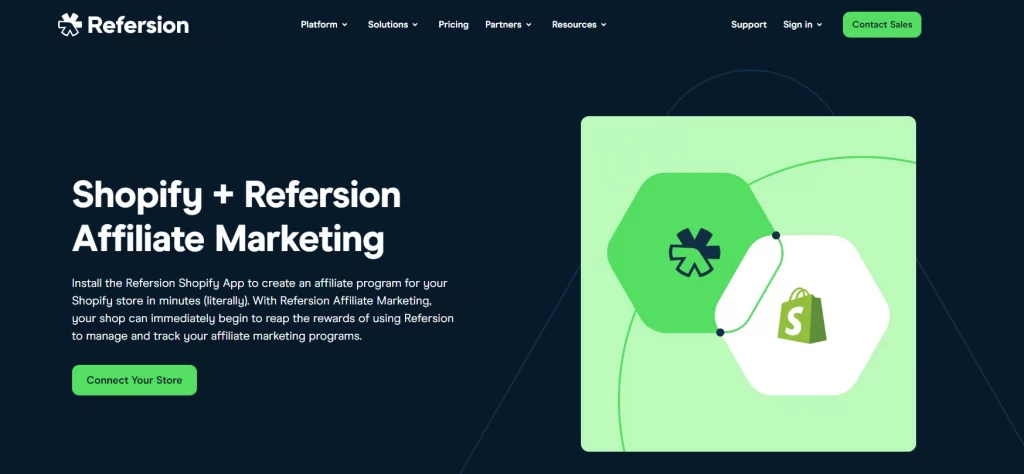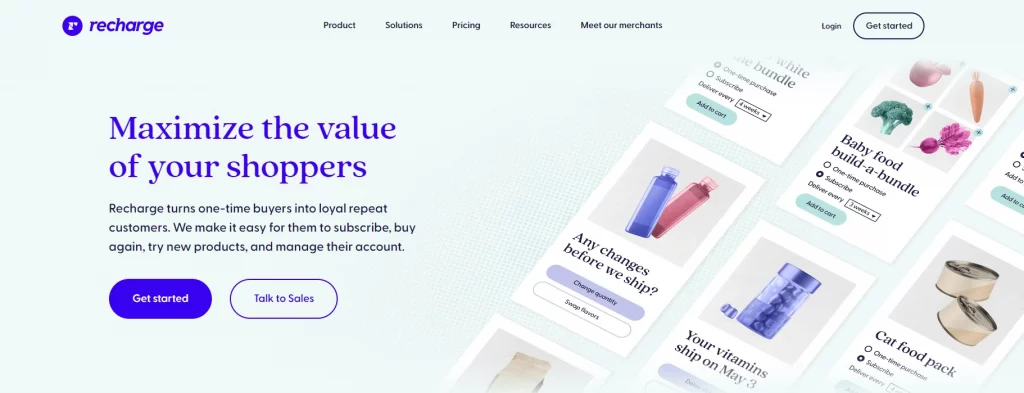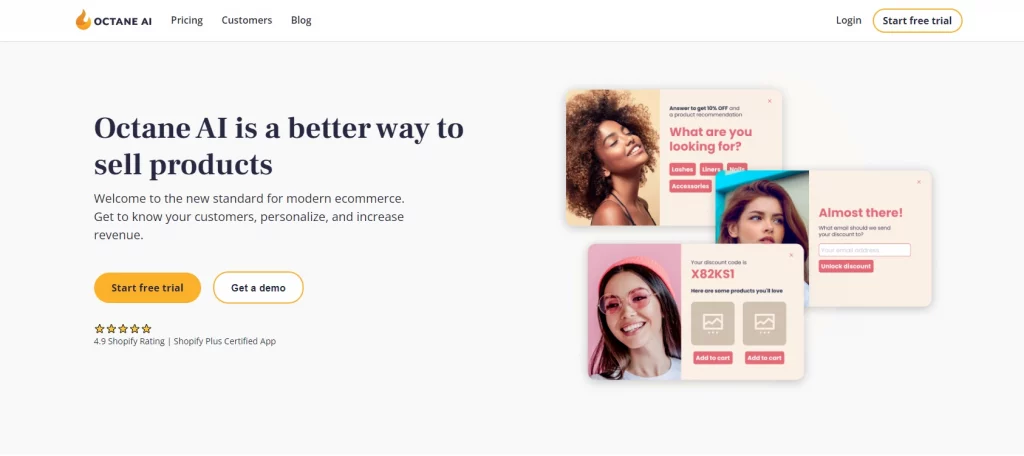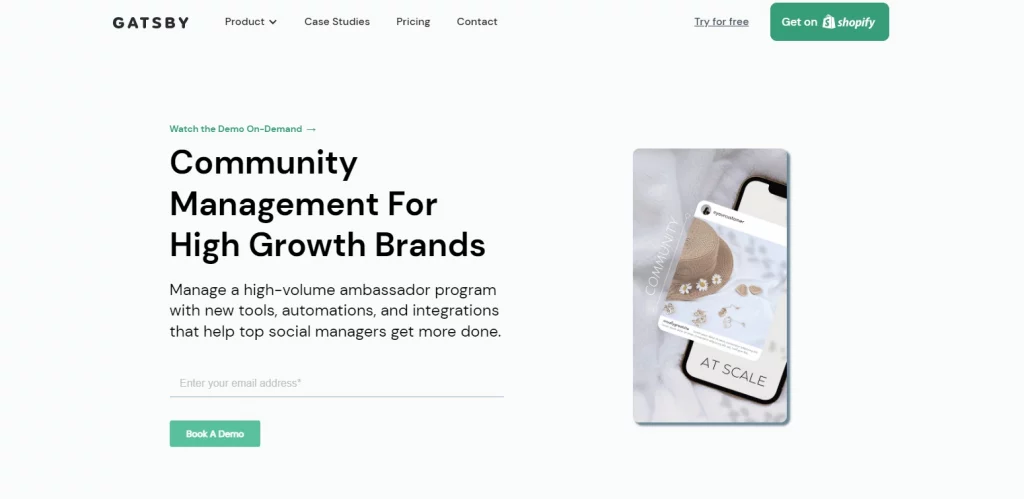Shopify is one of the most popular ecommerce builder sites out there. If you’re interested in doing more with your Shopify website, then you might decide to use apps. What are Shopify apps, should you use them in your store, and what are some of the best apps to use? Here’s a general overview of the process so you can start using Shopify apps more effectively.
What Are Shopify Apps?
Shopify apps extend the functionality of your Shopify stores in various ways. While baseline Shopify functionality is a great way to start your ecommerce business, there are a number of things that you might want to include in your Shopify store that aren’t available by default, like adding customer reviews, improving your shop FAQ section, or managing subscriptions. Additionally, the data you receive through Shopify apps can really improve your affiliate marketing program.
Shopify apps are also fully accepted by Shopify itself. You can browse through these apps on the Shopify website or even contact developers in the Shopify Partner Program to get help creating an app that suits your specific needs.
How Much Do Shopify Apps Cost?
It depends on the app and the plan you choose with the app. There are plenty of Shopify apps out there that are available either entirely for free or with a strong free program, so you only have to upgrade when you’re already getting plenty of use out of the app.
Most commonly, apps that are geared toward the wider Shopify audience, including absolute beginners and newcomers to the ecommerce world, are going to be free or lower-cost, while apps that are geared toward people who have been using Shopify for years and have a large audience are going to be higher-cost.
Top Shopify Apps for Various Shopify Store Needs
There are so many Shopify apps out there that it can be hard to decide on the ones that make the most sense for your business. Here, we’ve compiled eight Shopify apps that can help you build your business more effectively. All of these Shopify apps have free trials to help you start building a Shopify store that works more effectively for you.
Refersion – For managing your affiliate marketing program

If you want to make it easier for you to start, grow, and scale your affiliate program, then Refersion should be your first choice. Not only does Refersion allow you to create an affiliate program for your business in literally minutes, but also it helps you automate your processes, helping you gather more information about your program and using it to accomplish more.
Pricing: 14-day free trial, paid tiers starting at $99/month
Klaviyo – For growth email marketing

Klaviyo allows you to deliver a personalized experience across your marketing channels, using email and SMS marketing to reach out to potential customers more effectively. With Klaviyo, it’s much easier to send out email blasts and target various sections of your audience with email and SMS marketing.
Pricing: Free tier available, paid tiers starting at $20/month
Recharge – For selling subscription services

Subscription services can increase your customers’ lifetime value. If your customers have a great experience with subscription services, then they may also be more likely to buy any non-subscription products you have. With Recharge, you can save time and retain customers more effectively.
Pricing: Free tier available, Pro tier starts at $499/month
Zapier – For connecting all your apps

When you use a number of different apps, you may want to automate the way they work together. This isn’t always possible when using them individually, but with Zapier, it’s easier to automate every component of your app structure. When an event happens in one app, you can use Zapier to trigger something in another app.
Pricing: Free tier available, paid tiers starting at $19.99/month
Weglot – For creating a multilingual website

If you’re looking to make your website available in multiple languages, then Weglot is a great option. It can help you start selling in non-English speaking markets without needing to understand anything about complex coding.
Pricing: Free tier available, paid tiers starting at $15/month
Okendo – For showcasing reviews

Okendo allows you to collect reviews from your customers, which it then displays directly on your website. Plus, you can then curate reviews and prominently display them to excite other customers who might be interested in buying from your website.
Pricing: 14-day free trial, paid tiers starting at $119/month
Octane AI – For creating product quizzes

Product quizzes can be a great way to provide personalized recommendations to your users, and personalized data allows you to market more effectively to your customers. Plus, the quizzes come with “Add to Cart” links so you can immediately encourage customers to make a purchase.
Pricing: 14-day free trial, paid tiers start at $50/month
Tapcart – For creating a shoppable mobile app

Tapcart allows you to quickly turn your Shopify store into a mobile app, including push notifications and a number of other easy-to-use shopping features. With Tapcart, you have a better option than just a mobile-friendly website, creating an effective pipeline for repeat revenue.
Pricing: Free demo available, paid tiers start at $275/month
Gatsby – For identifying micro-influencers

With Gatsby, you can automate Instagram insights on your customers. This is an effective way to discover which of your customers may be able to drive revenue to your website through their following online, even if it’s fairly small. Plus, you can also automate reactions to your customers’ posting habits.
Pricing: 7-day free trial, paid tiers start at $270/month
The Bottom Line
Shopify apps are a great way to improve the functionality of your website. Even if you’ve never set up a Shopify website before, you can start integrating Shopify apps from the very first day to market your products more effectively. Remember that one of the most important parts of having your own ecommerce store is marketing, so use Refersion as well to improve your Shopify store.
FAQ
How do these top Shopify apps integrate with existing systems or platforms within a business, and are there any known compatibility issues?
Shopify apps typically offer seamless integration with existing business systems, but compatibility can vary. Detailed integration processes and potential compatibility issues are often discussed in the app’s documentation or support section, which should be reviewed to ensure they fit with the current business infrastructure.
What are the specific features and limitations of each recommended Shopify app not covered in the summary, especially for advanced users?
Each Shopify app comes with its unique set of features and limitations. For in-depth information, one should refer to the official app pages or user reviews, which provide detailed insights into advanced functionalities and any limitations that might affect usage.
Are there any case studies or success stories of businesses that have effectively used these Shopify apps to grow their online store?
Success stories or case studies of businesses using these Shopify apps are usually available on the app developers’ websites or through case study sections on Shopify’s blog. These narratives offer insights into how different apps have been employed effectively to grow and manage online stores.



